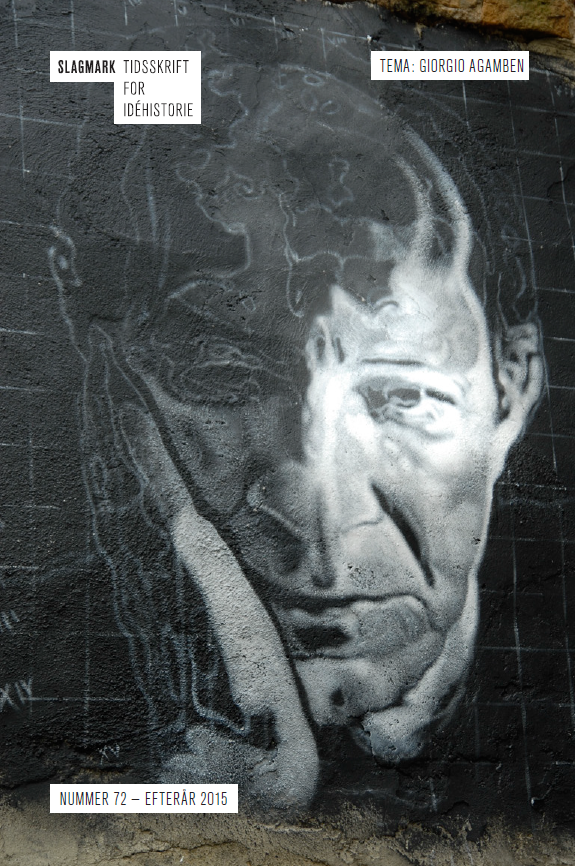Agambens kairologi:
Erfaring og den messianske tid
DOI:
https://doi.org/10.7146/sl.v2015i72.107205Keywords:
Agamben, Heidegger, kairos, messianism, inoperativityAbstract
This article argues that Giorgio Agamben’s conceptions of kairos (the decisive moment) and messianic time are essentially to be understood in terms of experience. This becomes clear when we identify the methodological similarities between Agamben’s reading of Paulus in The Time That Remains and Heidegger’s lectures on Paulus from 1920-21: the doctrine of kairology is different from any eschatology, insofar as it involves an instantaneous modulation of our factical conditions, rather than a removal of them (always yet) to come. In this way, I argue that Agamben echoes Heidegger’s conception of formal indication and enactment-sense. But whereas Heidegger understood this modulation as an anticipatory resoluteness, in which Dasein identifies itself with its calling, Agamben emphasizes the very impossibility of such an identification. This is indeed a decisive difference between Agamben and Heidegger. I show, however, that Agamben phrases this difference in a language that recalls Heidegger’s thought, thus implicitly suggesting that the emancipatory potential of his philosophy is to be understood as the experiential enactment of an impotentiality that undermines any factical condition and any social identity.
References
Agamben, G. (1993b). The Coming Community. Minneapolis: University of Minnesota Press. La comunità che viene. Torino: Giulio Einaudi editore, 1990.
Agamben, G. (1998). Homo Sacer: Sovereign Power and Bare Life. California: Stanford University Press. Homo sacer: Il potere sovrano e la nuda vita. Torino: Giulio Einaudi editore, 2005.
Agamben, G. (2000). Means without End: Notes on Politics. Minneapolis: University of Minnesota Press. Mezzi senza fine: Note sulla politica. Torino: Bollati Boringhieri editore, 1996.
Agamben, G. (2005). The Time That Remains: A Commentary in the Letter to the Romans. California: Stanford University Press. Il tempo che resta: Un commento alla Lettera ai Romani. Torino: Bollati Boringhieri editore, 2000.
Agamben, G. (2006). Language and Death: The Place of Negativity. Minneapolis: University of Minnesota Press.
Agamben, G. (2007). Profanations. New York: Zone Books.
Agamben, G. (2011). The Kingdom and the Glory: For a Theological Genealogy of Economy and Government. Stanford University Press.
Agamben, G. (2013). The Highest Poverty: Monastic Rules and Form-of-Life. Stanford University Press.
Granberg, A. (2003). Stemning og metode i Heideggers Sein und Zeit. I D.
Zahavi, S. Overgaard & T.S. Wentzer (red.) Den unge Heidegger. København: Akademisk Forlag.
Heidegger, M. (1976). Gesamtausgabe, Band 9: Wegmarken. Frankfurt am Main: Vittorio Klostermann.
Heidegger, M. (1995). Gesamtausgabe, Band 60: Phänomenologie des Religiösen Lebens. Frankfurt am Main: Vittorio Klostermann.
Heidegger, M. (2006). Sein und Zeit. Tübingen: Niemeyer. Væren og tid (ovs. Christian Rud Skovgaard). Århus: Forlaget Klim.
Ruin, H. (2003). At tænke i ruiner – Liv, død og destruktion i Heideggers tidlige skrifter. I D. Zahavi, S. Overgaard & T.S. Wentzer (red.) Den unge Heidegger. København: Akademisk Forlag.





